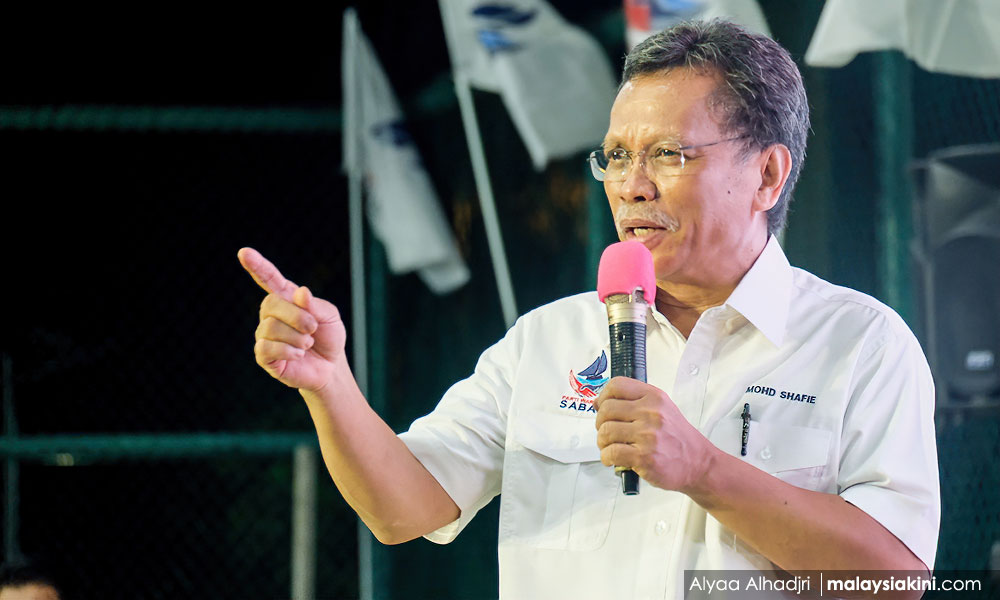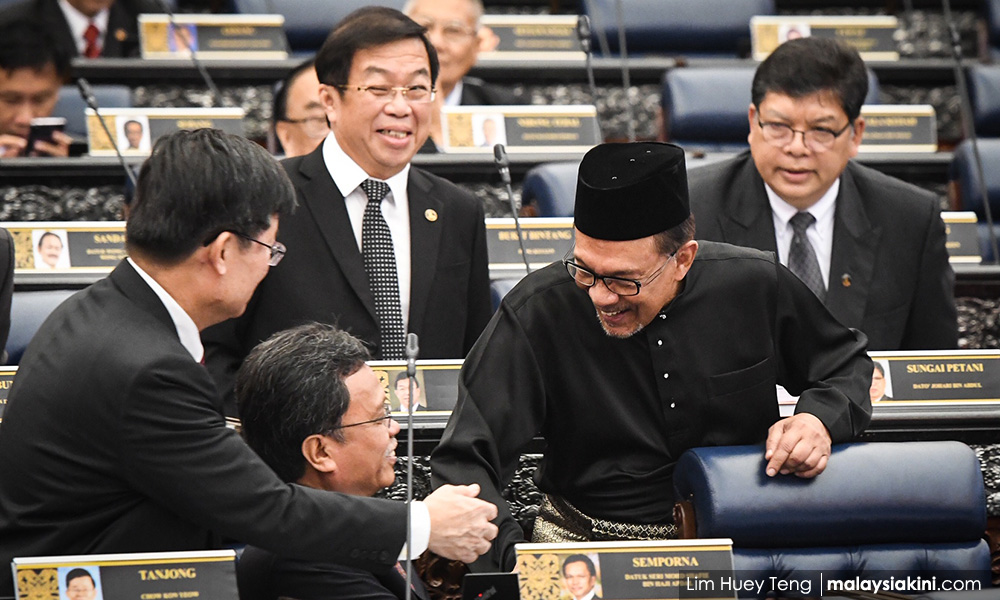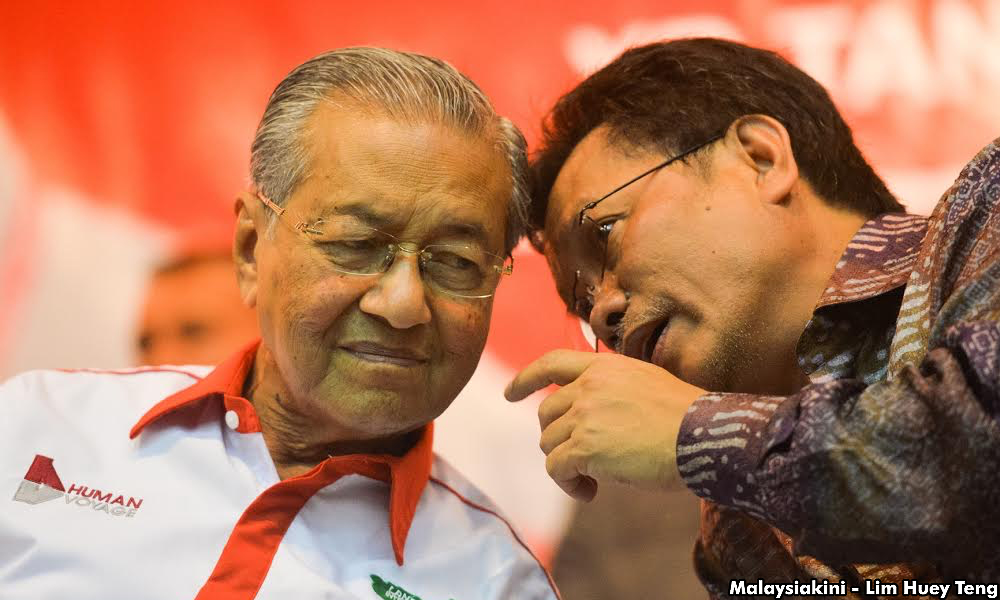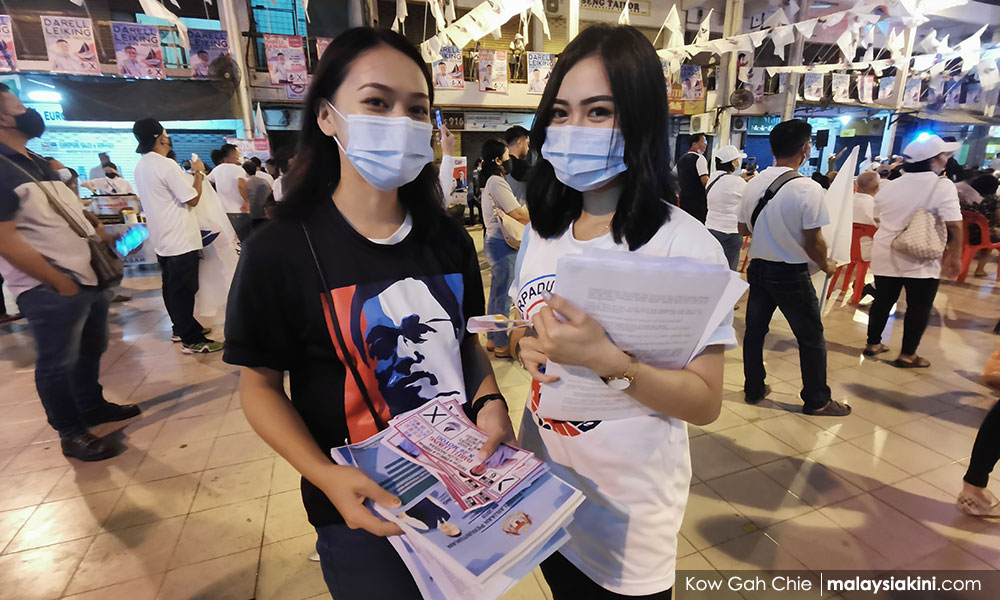In recent days former Sabah chief minister Shafie Apdal has been talking up the possibility of a larger role for East Malaysia as he used Warisan’s annual general assembly to push the divided federal opposition to institute a leadership change and even appeared to offer himself as an alternative to current opposition head Anwar Ibrahim.
The party’s youth chief, Mohd Azis Jamman, subsequently revealed that Warisan is considering spreading its wings to Peninsular Malaysia and become a full-fledged national party.
Yesterday, in an interview with radio station BFM89.9, Shafie went on the offensive again, floating the idea of an East Malaysian opposition leader while stopping short of offering himself the role.
“If Malaysians think that a person coming from Peninsular Malaysia has been presenting themselves (as leader for all Malaysia) for the last 60 years, why not a Sabahan or Sarawakian for that matter?
“Because we are building a nation here. Don’t tell me East Malaysians can’t provide or render their services to the country?” he asked.
Do a decent job in Sabah first
However, despite Shafie’s bold words, most analysts familiar with Sabah’s volatile political scene feel that the Semporna MP may be mistaking the role of kingmaker for one of sufficient broad-based strength that is required to lead the country.
“Shafie should focus on being a strong and effective opposition leader at Sabah state level before reaching for the federal opposition,” said Firdausi Suffian, senior lecturer public policy at UiTM, Sabah.
“Politics is fluid; Shafie was proposed as a prime minister (candidate) by Dr Mahathir Mohamad but before getting too ambitious he has to understand that Warisan is a local party, a Sabah-based party.
“For too long, Sabah has not had a strong opposition in the state assembly. Someone to play the check and balance role for the government. This is what Warisan needs to focus on at the moment.”

Associate Prof Awang Azman Awang Pawi of Universiti Malaya’s Sociocultural Department concurs.
“Shafie's proposal for a leader from East Malaysia to be federal opposition leader or prime ministerial candidate is less realistic because from independence till today, Peninsular Malaysia has provided the core of the main national leadership.
“Even to be put forward as a leader at the opposition level without the support of Anwar’s PKR is difficult to realise because PKR is a big political party with many parliamentary seats. Even a party like Amanah depends on the strength of PKR, without which it may find it difficult to win a seat.
“Most recently, Shafie’s Warisan lost in Sabah and this is a defeat of Warisan leadership at the hands of Bersatu and Umno. Warisan took the lead in Sabah and lost the elections in September, so to blame the current Harapan leadership for that is awkward,” said Awang Azman.
Harapan leader Anwar has come under fire after he failed to prove he had the numbers in the Dewan Rakyat to defeat the final Budget 2021 vote. The PKR president previously claimed to possess a “strong, formidable and convincing” majority in the House.
According to Amir Fareed Rahim, political analyst with KRA Group, Shafie’s stock fell with his defeat in the state election.
“Whilst it is theoretically possible for an opposition leader to be from East Malaysia, one will have to also look at the current political configuration and practicality.
“In the current opposition bench, one will also need to look at the number of opposition MPs from East Malaysia. Their representation is much smaller compared to their Peninsular counterparts.
“The biggest bloc of East Malaysian opposition MPs would be from Warisan - and yet they are not officially part of the larger opposition coalition Pakatan Harapan which comprises of DAP, PKR and Amanah.
“Moreover, assuming the candidate is Shafie, the main difficulty - besides the fact that PKR probably will not accept Anwar Ibrahim being displaced - is that he’s just come from Warisan Plus’s surprising defeat as the incumbents in the September 2020 Sabah snap election,” said Amir.

He highlighted that while Warisan as a party won the most seats in the election, the coalition it led was largely rejected by Sabah’s Kadazandusun-Murut community, and there were questions about its track record and achievement in government in the two years it was in power.
“This is significant because Warisan Plus ran on a campaign which heavily promoted multiracialism and leveraged on Shafie Apdal personally,” he added.
In the footsteps of PBS?
The idea of Warisan spreading its wings to the peninsula calls to mind an attempt by Parti Bersatu Sabah (PBS) in 1995 to field candidates in other states. It fielded three parliamentary candidates in Penang and another three in Sarawak but recorded dismal returns of 0.4 percent and 1.47 percent respectively and promptly dumped the idea.
The notion of Warisan or other East Malaysian parties being widely accepted by Peninsula voters was similarly given short shrift by Awang Azman.
“Leaders in eastern Malaysia are not comparable in stature to Anwar, Mahathir or even ex-premier Najib Abdul Razak. It is difficult to get a charismatic leader who can be accepted at the national level.
“The late Abdul Rahman Yaakub (a former Sarawak chief minister) was seen as very prominent and his role as education minister in the 1960s had a positive impact and his leadership style was accepted without anyone thinking he is from East Malaysia.”
Awang Azman also cited party-hopping, particularly among Sabahan politicians, as a trend that needs to change for them to gain respect.
“The party loyalty is seen as fragile in Sabah with party-hopping very common and is now spreading among elected representatives in the assembly. This situation affects the image and reputation of leaders from Sabah in projecting themselves as principled.”

For Firdausi, the political situation in Malaysia is so fluid that he won’t rule anything out, as the most unlikely of alliances are being proposed and there is a chance that an East Malaysian may be a compromise candidate for the nation’s top job.
“But if an East Malaysian ever becomes a prime minister, they will have to contend with wild expectations. Sabahans or Sarawakians have this utopian idea that if a Sabahan or Sarawakian become a prime minister suddenly you will twin towers in Kota Kinabalu and extensive development plans in East Malaysia. There is nothing wrong to think like that, but the expectation will be high.”
Adib Zalkapli, BowerGroupAsia director, feels that it doesn’t matter where a leader originates from so long as they can form a united front among the diverse political groups and is acceptable to most MPs.
However, he recognises some challenges peculiar to East Malaysia.
“I think every state in Malaysia is unique politically. However, in the case of East Malaysian states, local parties can really thrive, unlike in the peninsula.
“At the same time, it is always tempting for national parties to try to play a bigger role in state politics in East Malaysia. So far only Umno and Bersatu have succeeded in Sabah.”
This would seem to indicate that Warisan is more likely to find itself defending its current stronghold of Sabah rather than expanding to other states.
Looking beyond Shafie
Amir feels that whatever the scenario, Malaysia’s opposition definitely needs a careful rethink of its strategy should the next general election come sooner rather than later.
“The timing of the next general election is also crucial as will be the cycle of issues and circumstances the country faces at that particular point in time - which will determine the choice of prime ministerial candidate the opposition would present.
Amir said that it would certainly strengthen the fabric of Malaysia if the country could have an East Malaysian PM and prove that anyone - or, for the time being, at least any bumiputera - can become PM.

“Sabah and Sarawak have proven in the last few national elections that they are critical kingmakers to the formation of any government, and therefore can now stake their claims for candidates for the top post.
“But it is also important to consider the ‘kind of Malaysia’ the first East Malaysian prime minister becomes head of government of. Winning office may in fact prove to be the easier part. The counter-reaction to this change in the Malaysian polity can be divisive.
“For example, Barack Obama won the US presidency, but America remains racially divided. Even in office, he was subject to racist attacks and condescension. Ironically, some leftist commentators also accused him of being too deferential or non-confrontational when it came to racial issues.
“These are the kind of challenges the first East Malaysian prime minister might face and the political realities of the time,” said Amir.
He added that it is hard to see who else from East Malaysia could be opposition leader besides Shafie at this stage.
“Shafie has charisma and experience and not unlike Anwar, he is committed to multiracialism While other Warisan MPs like former minister Darell Leiking may be refreshing, they would not be able to command support and unite the opposition bloc.
Amir also said that it was not clear whether Sabah and Sarawak’s tradition of pluralism can be replicated in Peninsula Malaysia, where there are genuine racial and religious anxieties, both in the majority as well as minority communities.
“There are fundamental differences in dealing with the political ethos and norms between the East and Peninsular Malaysia - although in some small aspects, there seem to be convergences, such as party hopping.
“Having to depend on peninsula allies or proxies to deal with social conservatives and other key stakeholders will likely limit the effectiveness of a hypothetical East Malaysian leader.
“Furthermore, East Malaysian politics are also becoming hyper-local, as seen in the recent Sabah state election. The knowledge of how to deal with local issues in East Malaysia may also not be totally applicable to dealing with problems in the peninsula.” - Mkini




No comments:
Post a Comment
Note: Only a member of this blog may post a comment.